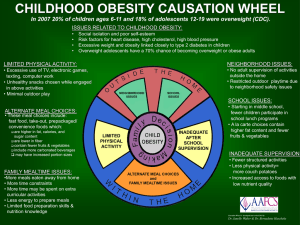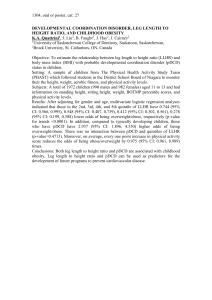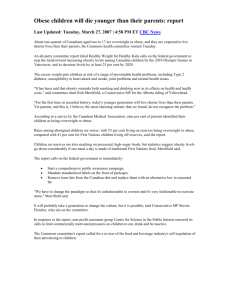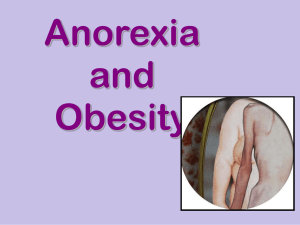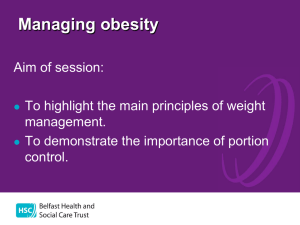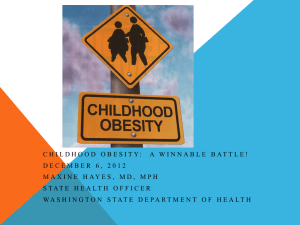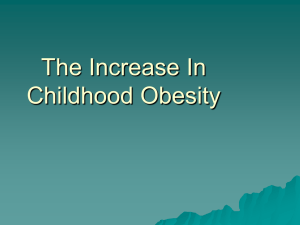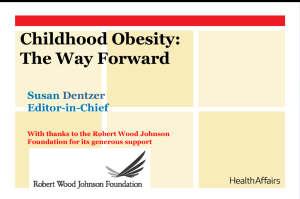Opening speech on Obesity Seminar_Final 19092012
advertisement
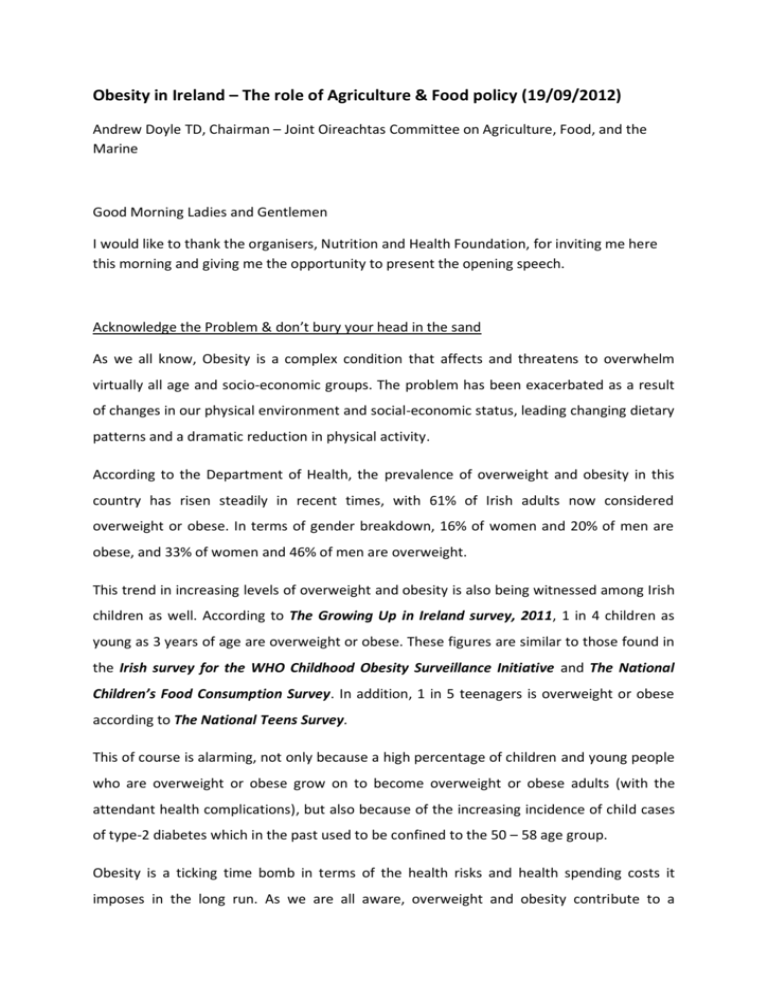
Obesity in Ireland – The role of Agriculture & Food policy (19/09/2012) Andrew Doyle TD, Chairman – Joint Oireachtas Committee on Agriculture, Food, and the Marine Good Morning Ladies and Gentlemen I would like to thank the organisers, Nutrition and Health Foundation, for inviting me here this morning and giving me the opportunity to present the opening speech. Acknowledge the Problem & don’t bury your head in the sand As we all know, Obesity is a complex condition that affects and threatens to overwhelm virtually all age and socio-economic groups. The problem has been exacerbated as a result of changes in our physical environment and social-economic status, leading changing dietary patterns and a dramatic reduction in physical activity. According to the Department of Health, the prevalence of overweight and obesity in this country has risen steadily in recent times, with 61% of Irish adults now considered overweight or obese. In terms of gender breakdown, 16% of women and 20% of men are obese, and 33% of women and 46% of men are overweight. This trend in increasing levels of overweight and obesity is also being witnessed among Irish children as well. According to The Growing Up in Ireland survey, 2011, 1 in 4 children as young as 3 years of age are overweight or obese. These figures are similar to those found in the Irish survey for the WHO Childhood Obesity Surveillance Initiative and The National Children’s Food Consumption Survey. In addition, 1 in 5 teenagers is overweight or obese according to The National Teens Survey. This of course is alarming, not only because a high percentage of children and young people who are overweight or obese grow on to become overweight or obese adults (with the attendant health complications), but also because of the increasing incidence of child cases of type-2 diabetes which in the past used to be confined to the 50 – 58 age group. Obesity is a ticking time bomb in terms of the health risks and health spending costs it imposes in the long run. As we are all aware, overweight and obesity contribute to a significant number of illnesses including, hypertension, type-2 diabetes, excess cholesterol, stroke, cardiovascular diseases, gallstones, gout, some types of cancer, and of course psychological problems such as stress and low self-esteem. It is therefore critical as a society that we do all we can to address and halt the disturbing rise in levels of overweight and obesity in this country. The Role of Legislation In terms of solutions, I believe that a muiti-sectoral approach, as exemplified by this seminar, is the best way forward since obesity is such a multi-framework issue which can only be successfully tackled by a concerted effort across all sectors of society, public, private, and commercial. In this respect, Agriculture & Food policy can play an important part, especially in line with the Recommendation made by the 2005 National Taskforce on Obesity Report. In particular, we should do all we can to pursue policies that support our farmers and agribusiness sector in the production of local vegetables and fruit, as well as high-nutrient, low-energy healthy products. This we can do by facilitating funding to local industry in favour of healthy products. We should also pursue policies that incentivise the marketing and retailing of low cost healthy food in low income communities so as to make healthy food accessible to all. The agri-food industry should also do more in terms of food labelling. It should, for instance, in line with best practice provide labelling that is accurate, consistent, and user-friendly, and contains information on portion sizes and nutrient content. The Special Action Group on Obesity set up by Minister for Health, Dr James Reilly, is currently examining putting in place guidelines for food & nutrition labelling, especially in the context of the EU proposal for regulating the provision of food information to consumers. The Need for Balance A word of caution however in relation to the marketing or advertising of food and drinks in this country. It is all too easy to fall into extremes and call for example for a complete ban on the marketing or advertising of so called unhealthy foods (i.e. foods high in fat, salt and sugar), especially when it comes to children. It is important to remember, however, that these so called unhealthy foods, when taken in moderation, will not be harmful to your health. Just as the consumption of healthy foods in large quantities will prove unhealthy to you. The crucial issue, therefore is that of balance, and good legislation in this area will thus seriously take into consideration actual consumption patterns and legislate accordingly. The greatest impact in tackling the problem of overweight and obesity will come from initiatives that promote a combination of healthy balanced eating and healthy balanced lifestyles. Initiatives, such as those that help children gain a greater appreciation for what is nice and tasty as well as what is healthy are therefore vital. The Special Action Group on Obesity has already developed and is currently implementing Healthy Eating Guidelines for Pre-school and Primary schools. And the Department of Health working with the Department of Education and Science is developing Food and Nutrition Guidelines for PostPrimary schools which will be available later this year. Initiatives promoting healthy balanced lifestyles will also be critical. Research has shown that 3 in every 4 adults and 4 in every 5 children in Ireland do not meet the targets set in the National Physical Activity Guidelines developed by the Department of Health and the HSE in 2009, and are consequently at risk of developing serious health problems due to inactivity. These Guidelines include recommendations for all age groups and levels of ability and were designed to help support people to be active every day in as many ways as they can. The basic message is that ‘physical activity is for everyone, and any level of activity is better than none’. For adults, the minimum level recommended is 30 minutes a day of moderate intensity activity, 5 days a week. There is also website www.getirelandactive.ie that we specifically launched to promote the Guidelines, so please do have a look. Remember, prevent is better than cure. In conclusion, I would like to wish this seminar and the National Health Foundation every success and look forward to considering the many interesting initiatives that will no doubt be presented here. THANK YOU
